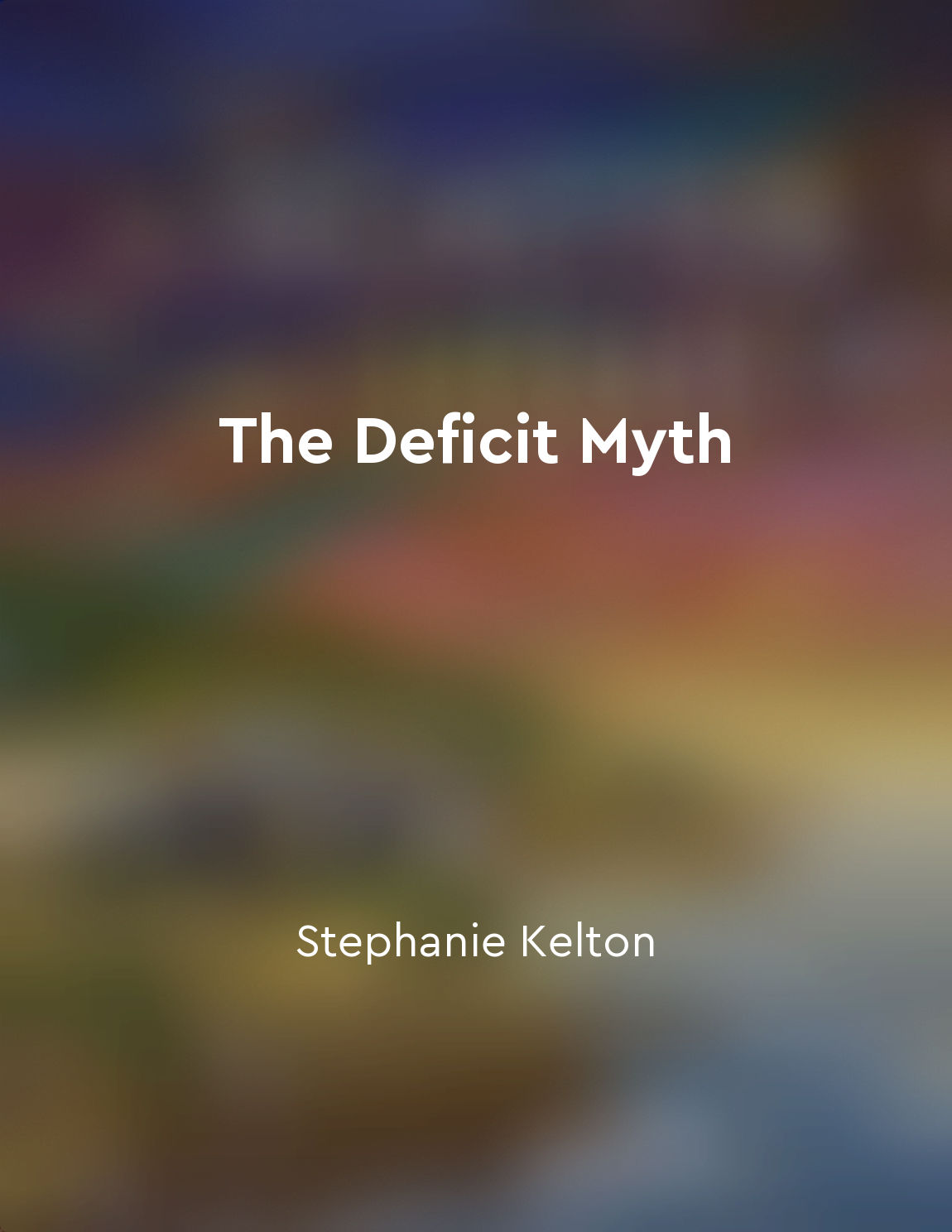Fiscal policy can have a greater impact from "summary" of The General Theory of Employment, Interest, and Money by John Maynard Keynes
Fiscal policy, when effectively implemented, has the potential to wield a more substantial influence on the economy compared to monetary policy. This assertion is rooted in the idea that changes in government spending and taxation can have a direct and immediate impact on overall demand in the economy. By adjusting these fiscal levers, policymakers can stimulate or cool down economic activity within a relatively short timeframe, thus exerting a more potent influence on the level of employment and output. The efficacy of fiscal policy lies in its ability to directly target specific sectors or groups within the economy that are in need of support or stimulation. For instance, increased government spending on infrastructure projects can create jobs in the construction industry, boosting employment levels and overall economic activity. Similarly, tax cuts for low-income households can enhance their purchasing power, leading to increased consumption and demand for goods and services. Moreover, fiscal policy can be more effective in times of economic downturns when private sector spending is insufficient to sustain full employment. In such circumstances, government intervention through increased spending or tax cuts can fill the spending gap and stimulate economic activity, thereby preventing a prolonged period of high unemployment and underutilized resources. In contrast, the impact of monetary policy, which operates through interest rate adjustments and credit availability, may be limited in certain situations. Central banks' ability to influence economic activity through monetary policy is constrained by the zero lower bound on interest rates and the existence of liquidity traps, which can render traditional monetary tools ineffective in stimulating demand and encouraging investment.- The concept of fiscal policy having a greater impact than monetary policy stems from its direct, targeted, and immediate effects on economic activity. By utilizing fiscal levers judiciously, policymakers can effectively manage aggregate demand, support employment, and promote economic growth, especially in times of economic distress or recession.
Similar Posts

Macroeconomic indicators guide business strategies
Macroeconomic indicators play a crucial role in shaping business strategies. These indicators provide valuable insights into th...
Rational actors respond to incentives
When individuals make decisions, they weigh the costs and benefits of different alternatives. Rational actors are those who mak...

Global trade benefits all
The principle of global trade being beneficial to all parties involved is a fundamental tenet of economic theory. When countrie...
Efficient markets reflect all available information
In a perfectly efficient market, all available information is already factored into the prices of assets. This means that inves...

Our economy can handle deficits without causing inflation
The idea that deficits are always dangerous is deeply ingrained in our collective psyche. We've been told time and again that g...

Economic freedom promotes prosperity
The essence of economic freedom is to allow individuals to make their own choices and decisions regarding their economic activi...
Fiscal stimulus can boost economic activity
In times of economic downturn, when private investment is low and unemployment is high, government intervention through fiscal ...
Macroeconomic stability is essential for sustainable growth
Macroeconomic stability plays a crucial role in fostering sustainable growth in an economy. When an economy experiences stabili...
Economic growth vital for prosperity
Economic growth is a fundamental driver of prosperity in any economy. By expanding the total output of goods and services in an...

